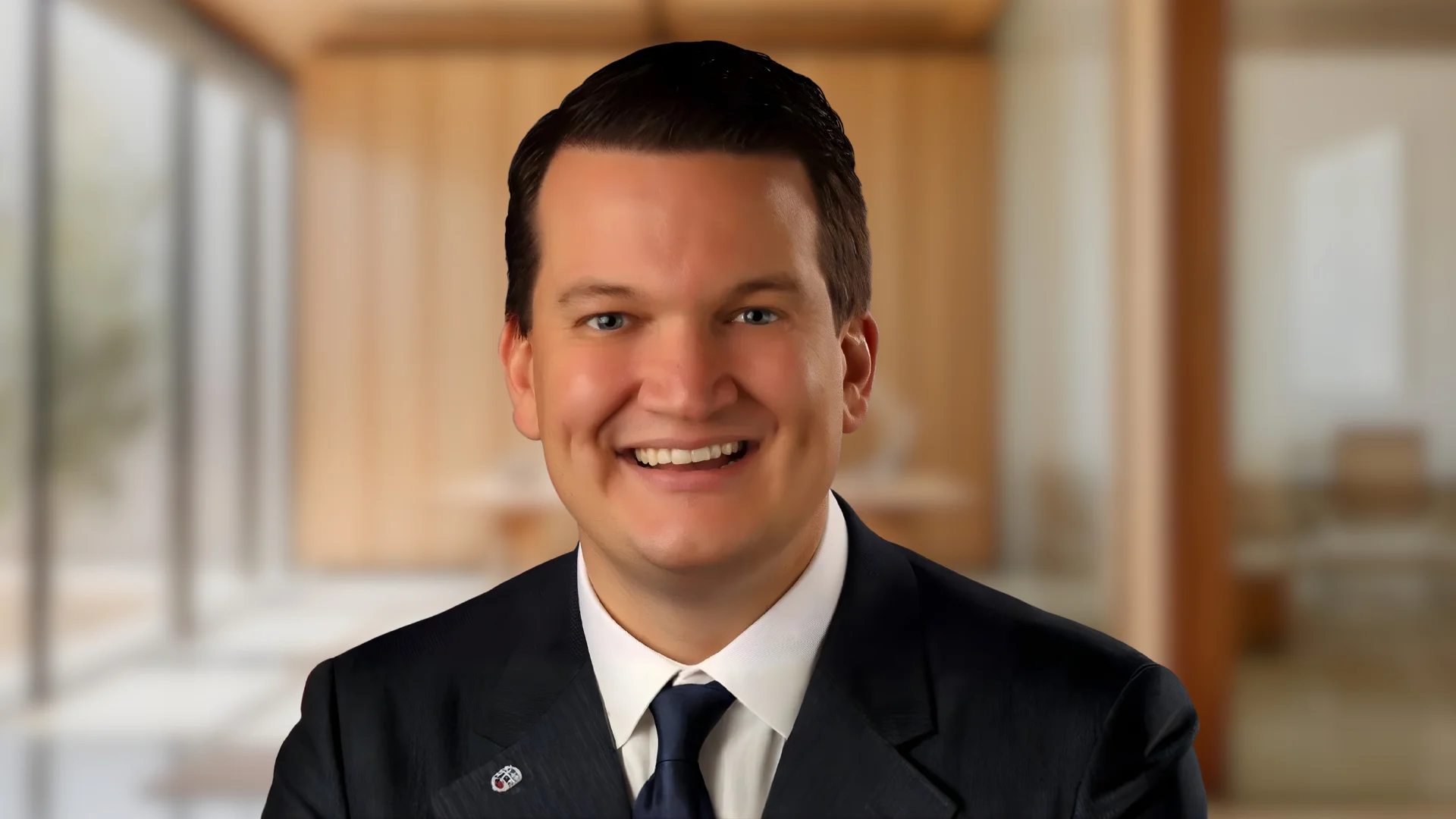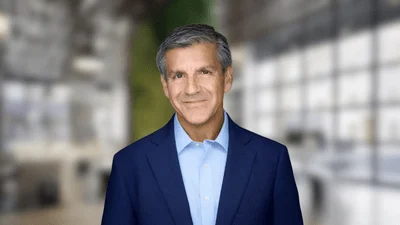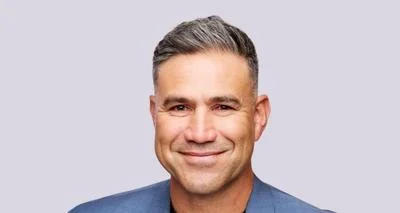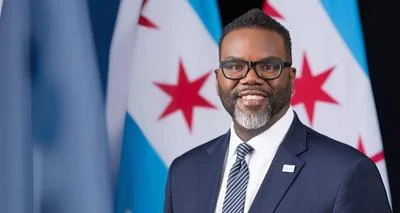Andrew Chesney, State Senator for Illinois | Official Website
Andrew Chesney, State Senator for Illinois | Official Website
Andrew Chesney, a State Senator from Illinois, said that a universal school choice tax credit would become politically durable once adopted because families value lasting options and the portability of funds. This statement was made on the Prairie State Wire Podcast.
"Now, it does require that the, the state has to opt in," said Andrew S. Chesney, State Senator for Illinois. "Let's be very clear. Any state that opts into this, it's never going away."
The expansion of universal school-choice and tax-credit scholarship programs in U.S. states reflects a broader shift toward market-style education reform. According to The 74 Million, these reforms allow families to opt into publicly supported alternatives to traditional public schooling. Policymakers are increasingly debating mechanisms such as education savings accounts (ESAs), donor-funded scholarship granting organizations, and federal incentives that require states to opt in before participation—making adoption a conscious policy choice rather than automatic. The new federal tax-credit scholarship program is not mandatory for states and hinges on state approval.
As of mid-2025, there are 22 tax-credit scholarship programs operating in 18 states, which have awarded approximately 217,194 scholarships nationwide. The nonprofit EdChoice reports that Arizona, Montana, and Ohio have tax-credit scholarship programs that open eligibility to all students in the state.
Longitudinal trend data indicate that the number of states with "universal or near-universal" private school-choice programs grew from essentially zero in 2021 to 13 by 2024-25. Analysts project up to 16 states may have universal programs by 2026-27. However, program continuity is not guaranteed; for example, Illinois' donor-tax-credit scholarship program expired on December 31, 2023.
Chesney is a Republican member of the Illinois State Senate representing the 45th District since 2023 and previously served in the Illinois House of Representatives for the 89th District from 2018 to 2023. According to his Senate office, he has advocated for expanding school-choice tax-credit scholarship programs like "Invest in Kids" and urged the governor to opt Illinois into the federal school-choice tax-credit program.
___________
FULL, UNEDITED TRANSCRIPT
Bryan Hyde: [00:00:00] Welcome to the Prairie State Wire Podcast. I'm Brian Hyde. I'm joined by State Senator Andrew Chesney, who is a member of the Illinois Senate. Senator Chesney, thank you so much for being on the program today. You actually have been involved in, in political service in the state of Illinois for quite some time.
Walk us through your background and then let's, let's talk a little bit about a current issue that is, is right there on the front burner.
Andrew Chesney: Well, like, like most people, I think, Brian, that get involved in, in public service, you know, you feel called to do it, which I certainly did. I, I was on the Freeport City Council and I was working with a, a very difficult mayor on a local issue.
And, you know, he, he wasn't really hearing our voice. What I felt was the majority of people that were in the area and he was just kind of pushing us all aside. So I said, well. It's not gonna hear our voice after several attempts. Maybe I'll just run for office so I can have a voice, right? A direct voice.
And so we ended up selecting four other people. We ran [00:01:00] a slate. We won all five city council races and took out about 75 years of city council experience, which it was nice to, to shake it up. And then shortly after that, we elected a new mayor and moved on and, and you know, you just. You feel good when you do it, you feel good helping people, making good decisions, try trying to find out how to get to, yes.
You know, many cases, government's one of the biggest impediments to people's lives from taxation to regulation, et cetera. And then coupled with that, I also continue now to still serve as the local, uh, Stevenson County Republican Chairman. So I run the local GOP in my area as well. And so certainly I feel called to serve both on the political and official side and feels, feels good to do it to, to help people.
So.
Bryan Hyde: Talk to me a little bit about education and school choice in the state of Illinois. When I, now, when I think of Illinois, I immediately think, okay, now that's a blue state. So school choice probably wouldn't be very welcome there. But actually, as I understand it, Illinois had a really decent school choice [00:02:00] program.
Talk to me about that program and what happened to it.
Andrew Chesney: Yeah, so we had an investing kids program that was essentially a, a tax credit and some would ar argue a scholarship program. And you know, it helped. Underprivileged kids get out of poorly performing school districts. And so what we found that Democrats and Republicans at the time, why they agreed to it, is because some of these kids get trapped because their parents don't have a lot of money, can't move them into a, into a better area.
And so they're, they're, they're kind of stuck with the school system that's been presented before them. I represent some really great public sector school systems, but I also represent some that that. Really don't perform well. And so we have to, as, as a legislature, recognize when, when, when we fail. And I, I think that the, the government schools has been tested throughout the, throughout the country and hasn't proven to do a very good job just collectively from reading, writing, and arithmetic from our [00:03:00] scores to just, just overall performance.
When you, when you take a look, Brian, at what we spend. Per pupil, and, and then you compare that to our test scores and then you compare that to other countries, we're just falling woefully short of expectations. And so school choice offers competition and this, these tax credits was, was a very, very narrow program.
That allowed families to get their kids out of poorly performing schools, but specifically targeted those that that had areas that were significantly income restraints, right? They just didn't have the money to get their kids out. Republicans, for the most part, pushed behind it and said, Hey, we have to have to continue on with this program.
We did see a couple of. Teacher Union Republicans that were, were quietly opposed. But, uh, for the most part, I thought the, at least the Republican Senate caucus did a nice job, Brian, of being unified around this idea. And I, I would say just an observation, that's probably the most [00:04:00] frustrating thing. And, and this is something that for those that are viewing this.
May not think of initially, but if you let it marinate a little bit, it definitely, it definitely will ring true to many people. You know, when, when we take a look at the, the types of folks that are lobbying us on behalf to, to reinstall the investing kids program, you know, many of them, you know, we don't, we don't have the same background, we don't have the same experiences, but.
We certainly wanna listen to them because they think they have a lot of good things to say. And a lot of 'em were from the south side of Chicago. Many of 'em were minorities, black and brown people that were just single mothers that were just asking for some relief. And I think Brian, what was the most frustrating thing is, is that we were willing to sit down with them in good faith, even if we recogniz.
That we come from different parts of the state and different walks of life and different backgrounds because it's the right thing to do because it helps all children regardless of your political affiliation, your [00:05:00] color, your background. And those same folks, their representatives in the south side of Chicago and the Chicago land area wouldn't meet with them.
And so they literally voted to eliminate programs to help the same people that they claim to care about and represent.
Bryan Hyde: Wow. So. What, what was the motivation was, was the, the motivation to end that program. Was it simply at the behest of, you know, the teachers unions or was there, was there a larger political purpose behind that?
Andrew Chesney: No, it's really the teacher unions. That's about it. You know, we have a, a mayor, a mayor in the city of Chicago that has an approval rating somewhere, bounces between nine and 12%. He, he's not an overly smart person, but he was picked by the Chicago Teacher Union. He actually worked for them, and so they wield so much influence.
Not because their product is good, it's because they have, they run bloated budgets and 85, 90% of that union due goes to political activity to elect [00:06:00] legislators. And so they better remain quiet in the eyes of the teacher unions or they run the risk of getting unelected or beat in their elections. And so these are political calculations.
These are not, these aren't really as much philosophical as they're political because if you take a look at those, that, that. That fair? The, that. Are impacted the most out of investing kids, scholarship programs, tax credits, voucher programs. It's generally speaking, low income and predominantly not exclusively, helps the minority communities the most.
And so I think Ted Cruz said it's the. You know, this is a civil rights argument of the 21st century as universal school choice. And he's probably, I think he's right, is, you know, getting, giving everybody a fair opportunity to be educated should not be political. It only becomes political because there's a, there's a section or a segment of, of the [00:07:00] progressive left, Brian.
That want government education exclusively. I mean, think about that. That the only option you have unless you wanna self-pay is a government education. And it's not as much a government education as it, it's a government indoctrination.
Bryan Hyde: Yeah, you watch video clips of Randy Weingarten with the National Education Association and I, I would just imagine most thinking people would, would be hard pressed to deny that there's some kind of an agenda at foot that's.
You know, primary to educating kids. Now, this doesn't mean though, just because in, in 2023, the Illinois legislature chose, the Democrats chose to end this, this tax credit program. I understand that there is a new opportunity that is coming that that could take its place if the governor can be persuaded.
Tell me about, about this latest opportunity.
Andrew Chesney: The big beautiful bill, right? A lot of great things, you know, no tax on tip, no tax on social security, no tax on [00:08:00] overtime, largest tax cut in American history. I mean, just lots of, lots of tax cuts, so, so definitely everybody won in that bill and one of the.
Biggest winning components that I think is more transformational is going to be essentially a UA universal school choice tax credit where you get $1,700 a child, and I think the rules are still being written on it. So it's not exactly clear today what that looks like and how it's gonna be implemented.
But widely well received to where it's my understanding you can, you can provide a dollar amount up to $1,700 and you get above the line. I don't wanna get into tax law too much, but you get a dollar for dollar tax credit back for that particular transaction or interest in helping with the school choice initiative.
Now, it does require that the, the state has to opt in. Let's be very clear. Any state that opts into this, it's never going away. It, it, it, it, it will be way too popular. [00:09:00] It it, it will, it will take, it will take by storm. I mean, it will be incredible the impact this has because this will allow the, the underserved, the forgotten, the, the loss to, to get out from, from under these awful school systems and give them hope.
And these families now will be able to leverage these tax credits. One, if they have the financial ability to do it, that's great. But also for someone like myself whose children are growing, I still have the opportunity to participate in this, this tax credit program where I can, I can help a school, give out a scholarship, et cetera, and give them the money and then get that back and, and that should be well received.
You know, the dollars should follow the student, Brian, in my view. So let's assume. I'm just gonna throw a big number out there. I know the numbers vary state to state, but let's just assume it's $20,000 a kid. That's a pretty big number. If, if, you know, we have to address those with developmental disabilities, those with very special needs, [00:10:00] truancy issues.
You know, there's trauma issues. Like I recognize that we have to be, we have to have a safety net for a very specific group of folks. But let's take those groups and just put that aside. Not that they're less important, but let's just put that aside for the purposes of the discussion and talk about the 85 90% of students.
We should give them a dollar amount. When I say them, their parents, they should be able to do whatever they want with it. They wanna educate their kids in a co-op. They wanna educate their kids through private schools and buy books. They wanna educate their kids in a, in a, in a religious school, non-religious school, a charter school, let 'em, let 'em spend in public school, whatever they want to do.
They should be able to take that dollar amount. No different than if you are on Medicare and Medicaid. You get to take your insurance and decide who your doctor is. Now there are certainly limitations, and the program would certainly have some limitations as well. But you, if you don't like your, your local doctor, you can fire him or her and you [00:11:00] can go find another doctor.
Right. Again, within reasonable limitations, and all we're simply saying is, is why can't the kids do the same thing?
Bryan Hyde: Andrew, it sounds, it sounds like from the state's standpoint, this should be a slam dunk in that this isn't taking. Money away from the state public education budget, but it, it doesn't sound like it's a sure thing by a long shot.
And, and talk to me about the, the politics that, that could potentially trip up The governor when it comes to, you know, securing his support on this.
Andrew Chesney: I, I don't know that I see a political route where, where this gets implemented under this governor. I mean, we have a, we have a trust fund Governor that's never worked or an honest day in his life, inherited all of his money, took his dollars that he did inherit.
He didn't invest them in Illinois. He invested them in the Grand Cayman Islands, which is where all of his complic complicated trusts are. You know, he locked down our state, but sent his family to the free state of. Florida during the COVID [00:12:00] lockdowns and now his interest is to, to run for president. And so he's certainly not going to upset this segment of the electorates.
You know, prior to his, his political ambitions, before his political ambitions to become the president. Now I think he is delusional. To suggest that he can win the votes in Nevada, Arizona, Michigan, Wisconsin, Pennsylvania, North Carolina, and others. To suggest that somebody that believes that men should participate in women's sports can't give you the definition of a woman wants to put in, and has put a, not only encampments, but welcome centers into the poorest areas of our state.
I can't imagine that is gonna be palatable and, and that the electorates throughout this country are going to elect him. Now with that said, he has a lot of political ambitions and he is going to, even if he doesn't need their money, he wants their support and he's gonna definitely want the support of the teacher unions to get him out of a [00:13:00] primary.
Bryan Hyde: So talk to me about what happens if, if this isn't addressed. Let's talk about the consequences. People may shrug and say, well, I don't really have a kid in school, so it, it doesn't matter. But if, if. Governor Pritzker doesn't act on this opportunity. Who, who's gonna pay the price?
Andrew Chesney: Well,
Bryan Hyde: the kids pay
Andrew Chesney: the price.
I mean, ultimately it's, it's, it's our kids. You know? It's the next generation of leaders that pay the price because they were afforded a, a bad education. You know, it never, it, it should not be controversial to educate, to correctly educate a child. As I noted earlier in our conversation, Brian, they, they're not, their interest is education, but it's also an indoctrination, right?
That's why they want, you know, these kids to express their pronouns at the age of eight, or they want them to be subjected to, to drag shows at the age of 10, or start to learn their gender identity. That's why they have gay pride flags that fly in, you know, above our, our just. Below our American flag at our schools, right?
And [00:14:00] so there is definitely an effort and a deliberate effort to, to change society through education. And it's no longer reading, writing, and arithmetic and, and comprehension and the ability to show up to work, learning both the hard and soft skills in life. They wanna, they want. Social justice warriors, they want people that they, they look through the, they look at everything through the lens of the oppressed and the oppressor, right?
And they want, they want people to be angry at the age of 23, 24, and 25. And so they can, they can advocate and so they can, they can, you know, do crazy stuff. And that's why you see on so many of these college campuses, Brian, what happened in Israel? And you saw all these. These pro Palestinians that were chanting River to the sea, just crazy stuff.
Right? And, and it was happening in college campuses where Columbia University just had to cough up, I think $200 million because of all how they treated the Jewish community and the Jewish [00:15:00] students. And so it's, it's, it's our college campuses, especially in our elite college campuses. But it's also, you know, in our, in our.
Primary education, you know, in middle, middle school and high school. And so it's deliberate and that's why the teacher unions and the progressives are so fearful of it. You know, defund the police isn't popular. It's only popular amongst progressive Democrats that wanna create chaos in communities. You know, it's, it's not popular.
If you take a look at where progressive policies have been implemented and where the Democrats have dominated the agenda for a half a century, quarter century. High taxes, crumbling roads, high crime, poor education. I mean, Baltimore, la, Chicago, Philadelphia. It just goes on and on. Atlanta, you can go on and on in the states that are just, or the cities that are just dominated by liberal policies.
And they all, they all come to the same common, common theme. They're led by a bunch of people that are not qualified, [00:16:00] that are, have a, an agenda that is, is in contrast to those that they represent. And the net result is, is, is chaos to where ultimately what we've seen Brian in, in the city of Chicago, people are fed up.
I mean, they're, they're done voting, they're done complaining, they're done protesting, they're done showing up to town halls, they're leaving.
Bryan Hyde: So let's give our listeners a course of action here. For those who are hearing this and saying, you know what, you're right. Senator Andrew Chesney has, has explained this problem.
I wanna do something. What's the best thing that they can do? Is, is it contacting their, their representatives and senators in, in the Illinois legislature?
Andrew Chesney: Right, and, and we, so we get this a lot of times, Brian and I, you can, first of all, I wanna be crystal clear. You can always call me. I don't care if you're from the district, not from the district.
You're always welcome to contact our office and have your, you know, share your viewpoint with me. I can tell you when it comes to this topic, my position is crystal clear. Unlikely it will not change, but highly unlikely to even get [00:17:00] modified even a bit. And so, telling me to, calling me to support school choice in the school without.
Voucher program is not probably the best use of your time. 'cause I'm with you. I'm a hundred percent behind you. And so what we have to do is, the same thing we did with the homeschoolers when they tried to heavily regulate the homeschoolers in Illinois is we have to mobilize and we have to get into the districts.
That the Democrats are in and, and, and get them a little uncomfortable with, with just the phone calls, the emails, the conversations. And of course, we're gonna be very courteous. I, I'm not suggesting at all that we're not courteous, but we just have to be very intentional on making sure that we are getting our message through, that we're trying to help all children, not just those that are wealthy, not just those that are connected to some of the political elites, but but also those forgotten children that are stuck in bad zip codes that are stuck in bad zip.
School districts that need a little bit of help. And so it, it's, it's kind of like that, that old school family, you know, that phone tree that we used to do in Little League, if there was a [00:18:00] storm coming and everybody would just call five people. You almost have to do that. But be intentional and find out, okay, here's 10 senate districts.
These are represented, these are represented by by Democrats that are very favorable to the teacher unions. We're gonna get a hundred people to call and speak out. I against Governor Pritzker's position on this particular tax credit, and then I've seen it work. I just saw this session work, Brian. I mean, we literally saw the Democrat majority just exhausted.
When they tried to regulate the homeschoolers to where they finally said, you know what? Even if we disagree with you, this just isn't our fight. We're done. And so I think that's how you do it. I know that that's repetitive to what you hear from a lot of elected people is, you know, you have to call, you have to do that.
But really you have three things. You vote. Right. You can advocate for your, you, you can advocate for your position or you can you or you can run, right? I mean, there's just a few things that [00:19:00] you can do to really affect that change. And so, you know, you can advocate and vote, which are very, or you can run, but you know, consider doing all three, but you're to advocate and to vote are probably the first two things that you should think about doing.
Bryan Hyde: We've been speaking with Senator Andrew Chesney, who is in the Illinois Senate. Andrew, it's been wonderful visiting with you. I wish you the very best on this. For, for people who wish to contact you, is there a website, uh, where they can, can follow you?
Andrew Chesney: Yeah. Senator chesney.com. It's my, it's my state, state website.
Would love to have you. We sign up for our newsletter is@senatorchesney.com. Is is the best way we, we send you one to two emails a week. Try not to do any more than two, just to let you know what's going on. We do like a weekly up. Date That just kind of wraps up everything that's going on. And then I also, every other week I, I do a, just a column of just a topic like, so I'll, I'll just like this, this week we talked about the Amazon tax of Governor Pritzker's interest to putting a dollar 50 charge on every [00:20:00] package.
And so we're gonna continue to have those conversations and as always, we'd love to hear from you. And Brian can't tell you how much I appreciate you having me on.
Bryan Hyde: Thanks again for being our guest. This is the Prairie State Wire Podcast.






 Alerts Sign-up
Alerts Sign-up